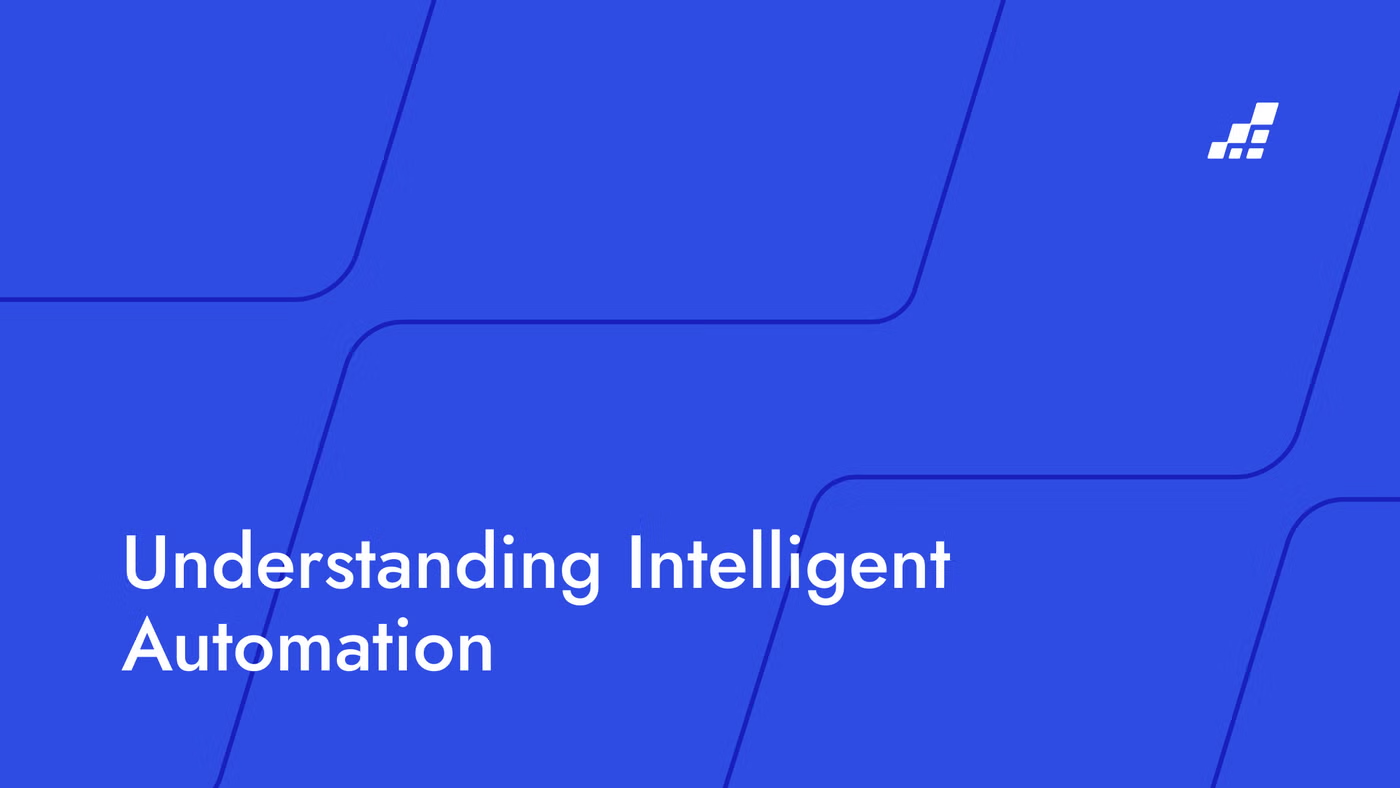- /
- Blog
Understanding Intelligent Automation

Intelligent Automation (IA) stands as a cutting-edge technology that's reshaping the landscape of business operations.
It's essentially a fusion of artificial intelligence and automation, paving the way for systems that can handle intricate tasks, learn from their interactions, and adjust to varying situations. But what exactly does this entail, and how does it function?
Throughout this detailed guide, we'll venture into the realm of intelligent automation, unravelling its core elements, advantages, and real-world uses.
Defining Intelligent Automation
Intelligent Automation represents a sophisticated evolution in automation, blending artificial intelligence technologies like machine learning, natural language processing, and cognitive computing with robotic and automation software. This synergy empowers systems not just to streamline repetitive tasks but also to adapt and grow through their interactions.
In contrast to traditional automation, which operates on fixed rules and demands precise instructions for every task, intelligent automation excels at handling unstructured data, drawing contextually informed conclusions, and even forecasting future trends based on past data.
This transformative capability positions it as a potent asset for businesses aiming to enhance efficiency, minimize errors, and secure a competitive advantage.
Components of Intelligent Automation
Robotic Process Automation (RPA)
At the heart of intelligent automation lies Robotic Process Automation (RPA). RPA uses software robots, or 'bots,' to take care of tasks that were once handled by humans.
These tasks can be as simple as entering data or as complex as managing multiple steps across different systems.
RPA bots are designed to mimic human actions, like clicking buttons, typing information, and navigating systems. However, they have their limitations—they can't understand context or make decisions based on unstructured data.
That's where the other parts of intelligent automation come into play.
Artificial Intelligence (AI)
Artificial Intelligence (AI) serves as the backbone of intelligent automation, enabling these systems to comprehend, learn, and evolve.
AI comprises various subfields, including machine learning, natural language processing, and cognitive computing.
Machine learning empowers systems to learn from their experiences and enhance their performance gradually. Natural language processing enables them to comprehend and produce human language, facilitating more natural and intuitive interactions with users.
Meanwhile, cognitive computing focuses on developing systems that can emulate human thought processes, allowing them to tackle intricate problems and make context-based decisions.
Benefits of Intelligent Automation
- Increased Efficiency and Productivity: Automation of routine tasks leads to significant boosts in efficiency and productivity while freeing up employees for more strategic and creative work.
- Error Reduction and Enhanced Work Quality: Bots working tirelessly 24/7 without fatigue or errors ensures consistently high levels of accuracy, particularly valuable in tasks like data entry and processing.
- Insights Generation and Trend Prediction: Intelligent automation analyzes large datasets to identify patterns and trends, empowering businesses to make informed decisions and stay ahead of the competition.
Applications of Intelligent Automation
Intelligent automation has a broad range of applications across various industries. In finance, for instance, it streamlines tasks like invoice processing, fraud detection, and risk assessment.
In healthcare, it assists with patient scheduling, medical record management, and even diagnosis and treatment planning.
In customer service, intelligent automation creates chatbots that handle inquiries, offer personalized recommendations, and resolve complaints.
In supply chain management, it automates processes such as inventory management, demand forecasting, and logistics planning.
These examples showcase how intelligent automation enhances efficiency across different sectors. As technology advances, its potential applications will only continue to expand.
Conclusion
Intelligent Automation is a powerful development reshaping multiple industries. By blending automation's efficiency with AI's intelligence, it provides businesses with a means to boost efficiency, reduce errors, and stay competitive.
Whether you're a business owner seeking operational enhancements, a professional aiming to broaden your expertise, or simply curious about technological trends, grasping intelligent automation is key. Looking ahead, it's clear that intelligent automation will continue to influence how we work and live.
The Future of Audit is Intelligent Automation
Discover how intelligent automation is shaking up the audit profession and why many consider it the absolute future.

.png?width=1410&quality=90&format=avif&crop=fit)
